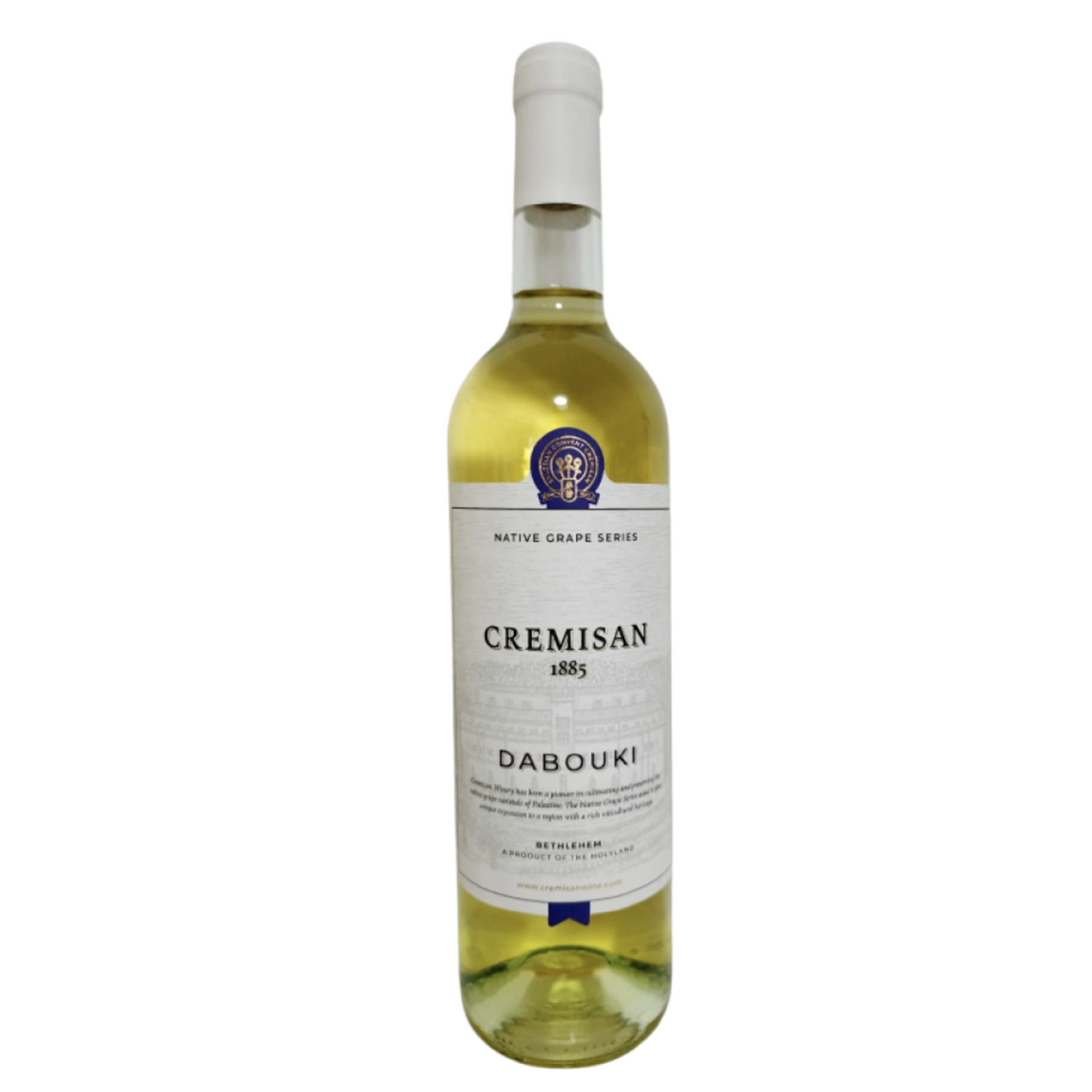Cremisan Dabouki, Bethlehem 2023 (750 ml)
Cremisan Dabouki, Bethlehem 2023 (750 ml)
Couldn't load pickup availability
Dabouki wine is obtained from the indigenous Palestinian grape called Dabouki, cultivated mainly in the area of Bethlehem and Hebron. The grapes are of green-yellow color.
Harvest
The grapes ripen around the middle of September. They are handpicked in small boxes, during the first hours of the day or at night to preserve varietal aromas.
Alcoholic Fermentation
After the destemming and the soft pressing of the grapes, the clean juice is fermented in stainless steel tanks using selected yeasts at controlled temperatures thus obtaining a wine with good flavor and aroma.
Aging
The wine is aged in stainless steel tanks on lees for 4 to 6 months.
Bottling Preparations
The wine is then cooled down to -4 degrees Celsius for 10 days and then filtered twice before bottling.
Organoleptic Characteristics
This wine has a straw yellow color with green reflections, a fresh lime juice, melon, grapefruit, peach and apricot flavor. A light mouth feel and refreshing acidity and minerality makes this wine perfect for sipping on a warm evening.
Food Pairing
Goes well with summer salad, sushi, seafood and grilled fish.
Best Served between 8–12 degrees Celsius.
Annual Production 10,000 Bottles.
Previous Awards: 2013 vintage was awarded 89 points by Wine Spectator
About Cremisan
The Cremisan monastery and winery was founded in 1885 by Fr. Antonio Belloni an Italian Salesian Monk. He opened the wine operation in an attempt to create a revenue source for the monastery’s orphanage.
Cremisan is located on the northern slope of Mount El Ras just outside the city of Bethlehem and only 12k away from Jerusalem. The name Cremisan comes from the Arabic “Kerem Zan” meaning the Vineyard of Zan grapes, an indigenous Palestinian varietal.
Cremisan was the first winery in the region to use indigenous Palestinian grapes, sparking both regional and international interest in Palestinian grapes. Cremisan’s interest in the grapes stemmed from research conducted by now Head Winemaker, Fadi Batarseh. For his university disseration, Fadi studied 64 different grape samples from around Palestine and concluded that Palestine is home to 21 unique genomes. Fadi and the Cremisan team picked the most promising four (Dabouki, Baladi, Hamdani, Jandali) to utlitize commercially.


